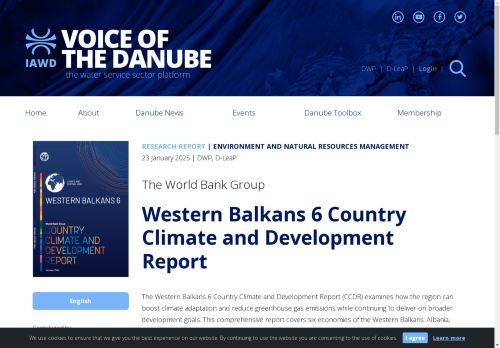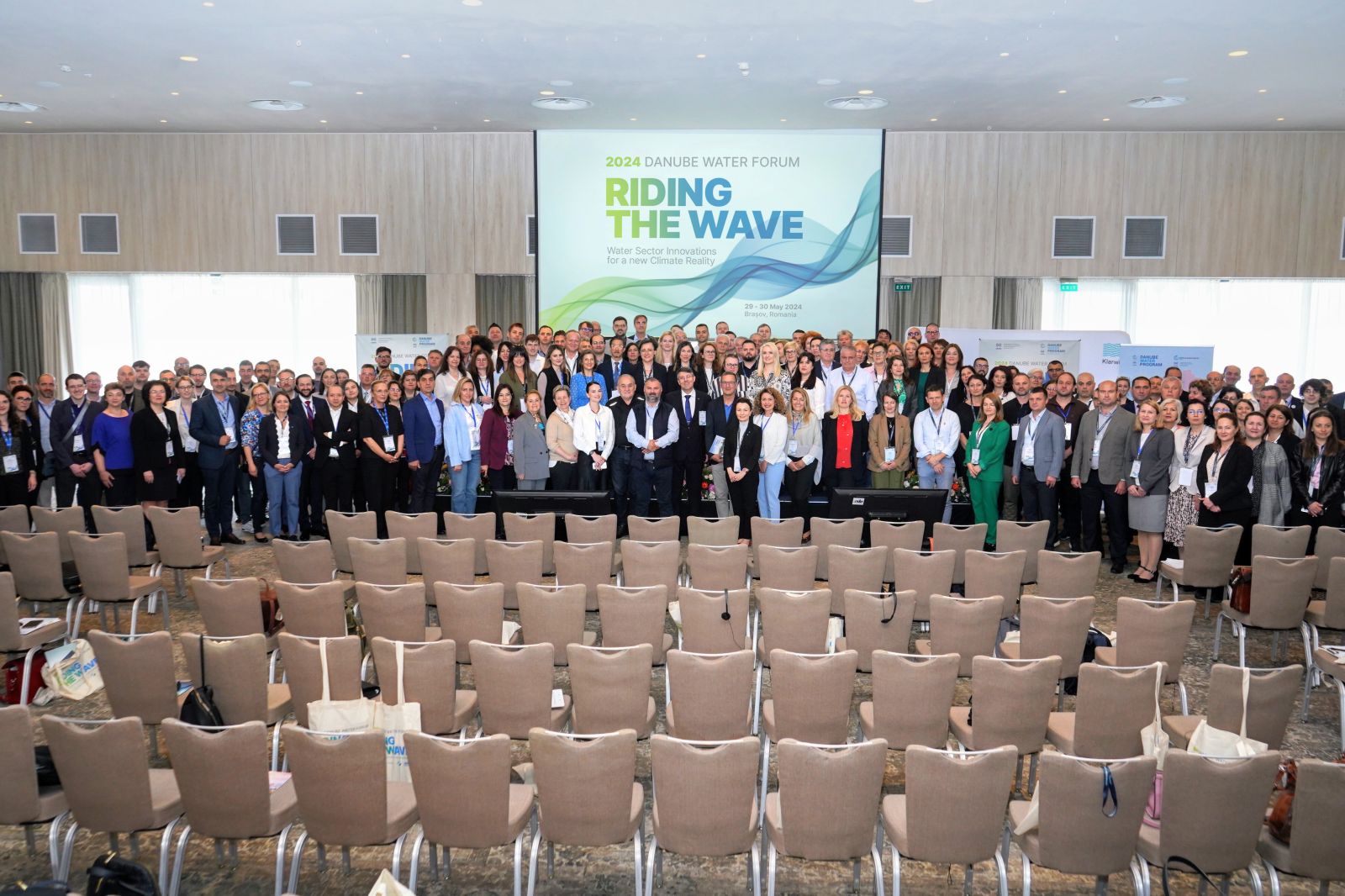
Voice of the Danube
CCDRs, the Country Climate and Development Reports issued by the World Bank Group, are core diagnostic reports that integrate climate change and development considerations. They build on data and rigorous research and identify main pathways to reduce GHG emissions and climate vulnerabilities, including the costs and challenges as well as benefits and opportunities from doing so.
As public documents, CCDRs aim to inform governments, citizens, the private sector, and development partners and enable engagements with the development and climate agenda. CCDRs feed into other core Bank Group diagnostics, country engagements, and operations, and help attract funding and direct financing for high-impact climate action.
At the height of the heat record breaking summer of 2024, the WBG issued the Western Balkans regional Country Climate and Development Report (CCDR), compiled with comprehensive input from the World Bank's Danube Water Program team.
In short, the report finds that over the next decade, the six economies of the Western Balkans - Albania, Bosnia and Herzegovina, Kosovo, Montenegro, North Macedonia, and Serbia - need to collectively invest at least $37 billion to effectively protect people and property from the damaging and escalating impacts of climate change – with accelerated economic growth as a beneficial side effect: According to World Bank estimates, climate change adaptation investments, particularly in low-and middle-income economies, yield significant returns, with about $4 in benefits for every $1 invested.
The Western Balkans CCDR emphasizes that a significant portion of funding can come from the private sector. To mobilize private investments, however, countries in the Western Balkans must ensure stable regulatory environments and attractive financial markets to encourage companies to engage in the opportunities presented by the transition. The report's policy recommendations to guide the region's transition to climate neutrality are organized into three categories:
- Transversal policies aim at integrating adaptation and mitigation efforts across institutions, for instance by creating specialized climate-focused agencies or commissions that act in an advisory capacity on all climate-related issues.
- Transboundary policies aim at cross-border collaboration and coordination in areas like early warning systems, shared resource management or harmonized energy systems.
- Targeted policies address the specific needs of vulnerable communities, including education and training reforms to enhance labor mobility and efforts to adopt climate-smart practices.
The World Bank Group is helping countries curb carbon emissions and build resilience to extreme weather. It is setting an ambitious goal to devote 45% of its financing to climate action by 2025, deployed equally between mitigation and adaptation. During fiscal years 2023 and 2024, the World Bank Group has committed nearly $1.2 billion of climate finance in the Western Balkans.
You can access the full document in the Voice of the Danube Library under the link provided below.




